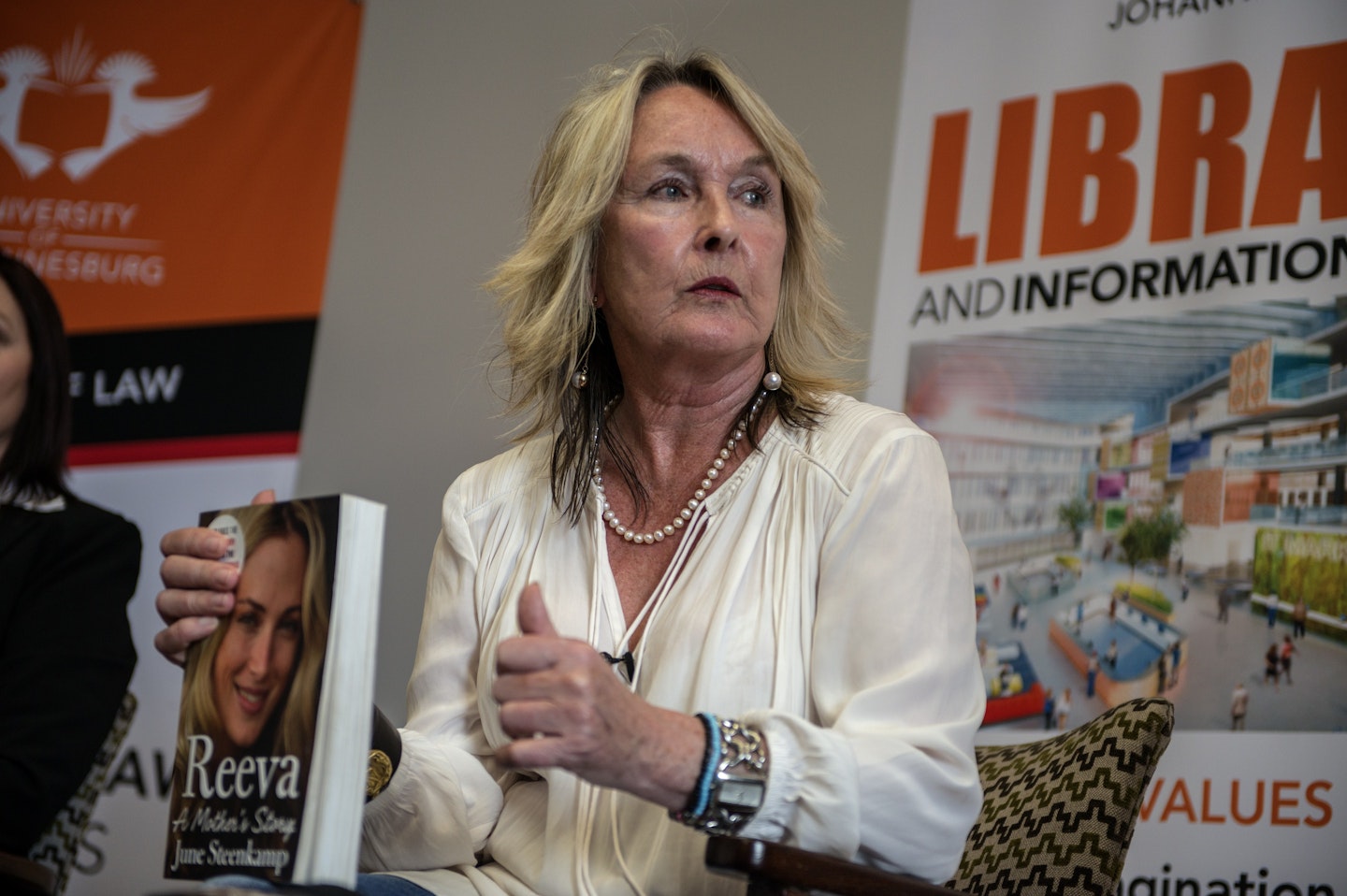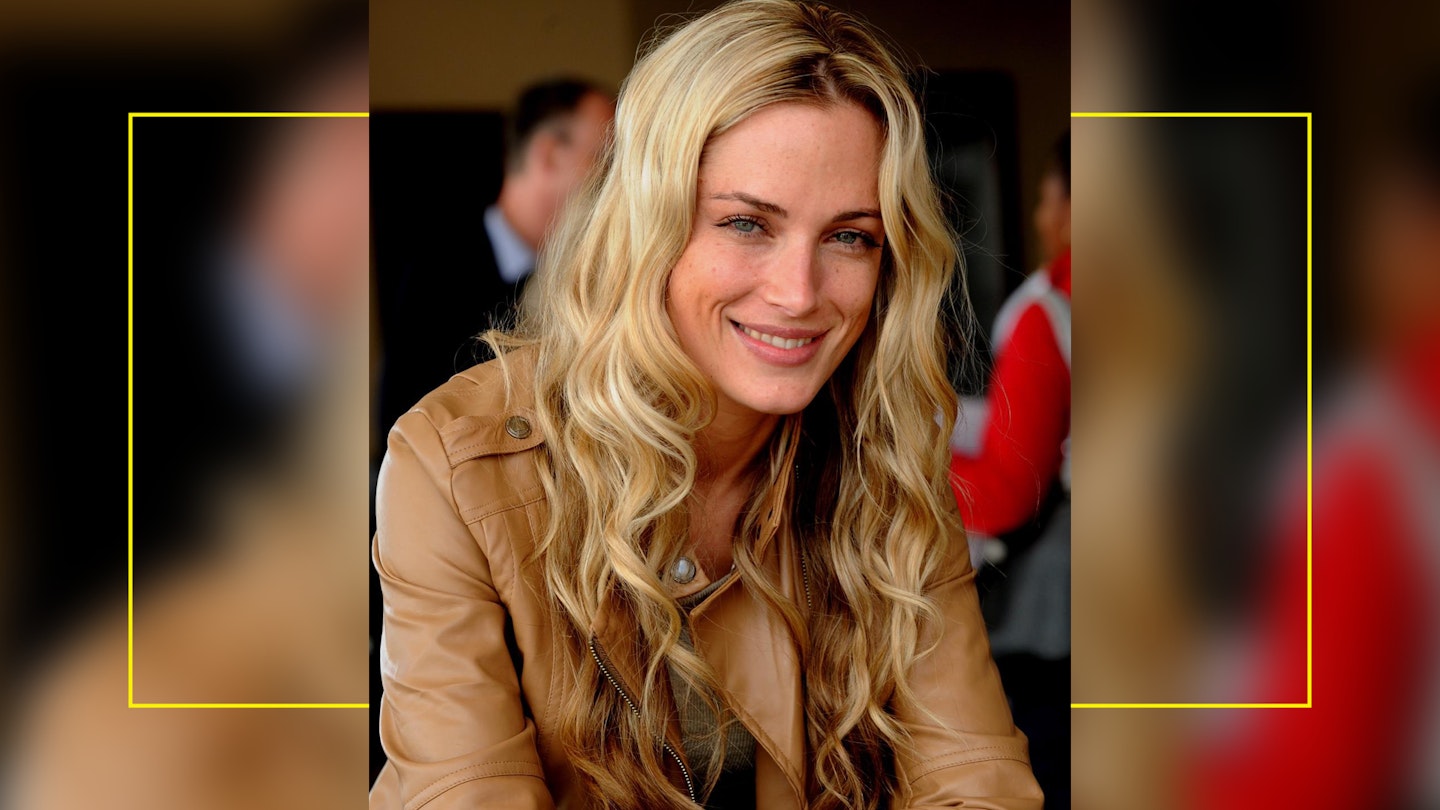Her name was Reeva Steenkamp – and like all victims of abuse, she deserves to be known as more than the ‘bump in the road’ in the ‘great story’ of her murderer.
Seven and a half years after the most horrendous thing imaginable happened to Reeva Steenkamp and her family, a four-part documentary assessing the ‘fall’ of the ‘international hero’ who has been jailed for murdering is now available in living rooms across the UK.
Despite a huge outcry over the many issues with the documentary (on BBC iPlayer) and the way in which it has been marketed, causing huge pain to Reeva’s family (if you Google the name of the show, the first result you’ll still see is a description that reads ‘[It] tells the story of the 'Blade Runner' – who went from being an international hero, who inspired millions with his determination and dedication, to being charged with murder when he killed his girlfriend Reeva Steenkamp on Valentine's Day 2013.’
If that's not turned your stomach, think about how it would make you feel if your friend or family member was murdered. That the man who killed her, to this day, is hailed first as a hero, before the rest of every sentence that mentions her death. His ‘importance’ prioritises his act in ending her life.
Admittedly, it is understandable that there would be some interest in the case of one of the world’s biggest sporting stars killing his also famous girlfriend – Reeva was a model and law graduate, famous in her own right in South Africa. And let’s just take it as read that there is – for whatever reasons founded and not – an appetite in society for documentaries about crimes.
But, as ever, when we talk about violence and murders of women, it is the framing that is totally off. Like, way way off.
When it comes to violence against women and murder, we repeatedly cannot let go of the legacies men have built. Their achievements always come before their brutal acts in the headlines and stories that surround us. It happens time and time again. Whether it’s ‘Hollywood actor and star of all your favourite films’ Johnny Depp 'also' being a wife-beater; or headlines about ‘wonderful fathers’ or ‘upstanding members of the local parish council’ who ‘no-one suspected’ were committing brutal acts of abuse and later murder. Or when ‘great stars’ die and we revert to gross infighting on social media about whether the fact they abused a woman is part of their obituary – a fair thing to mention in the reporting of their lives.
Despite what it says about sexism and patriarchy in our society (and that women’s legacies are easily destroyed by much smaller actions or, in fact, the actions of her partner or children), what does this say to victims of ongoing abuse? It says to women scared to speak out that they should be scared. Because they’ll always be footnotes. And that even when they think they’re ready to tell their side of the story, they’ll always be overshadowed and called into doubt.
In fact, no-one will even care about your name in comparison. You’ll have seen by now the controversy around the trailer for The Trials Of Oscar Pistorius. Oscar Pistorius is the centre of this story – his name is in the title. The entirely intended pun in the name of that title already puts the sympathy and distress firmly in the camp of the Paralympian. His trials, his tribulations – not her death and his gross misconduct. After a social media outcry of people using the phrase ‘Her Name Was Reeva Steenkamp’, the BBC apologised and took the trailer down from all platforms.
But anyone who has worked at a corporation knows how many hoops you have to jump through to get something out into the world. How many people created, watched, edited, approved that trailer before it got to that point? How many people didn’t notice – or didn’t care to think about the fact that Reeva Steenkamp’s name was never mentioned? In fact, some have even questioned why the BBC decided to buy the documentary from ESPN at all. They have just this week (days before it airs) had to confirm they will blur a gruesome image from the murder scene that wasn’t previously censored.
And that’s the problem as much as anything isn’t it? That violence against women and femicide is such a blindspot in ourselves and society, that red flags are never raised and it constantly needs ‘social media outcries’ for trailers to be axed, documentaries re-edited and headlines and Tweets to be taken down.

The media, of course, is a problem. They shape the way we think, what we consume, whose name goes first in sentences, whose side of the story is told. But we should also look at our own behaviour and ways we respond to violence. Have you ever said, ‘Him? Surely not? He’s lovely!’ Have you ever heard a story about abuse and said, ‘He was always nice to me!’ Or cattily chatted over the he said, she saids of an event with a friend? That's just a micro version of the way this entire case played out in society. It wasn't his act of shooting a gun multiple times that was on trial, but his legacy and image. Not a case of guilty or innocent - did he do it? More, did he? Him?The guy we all admired really do this? Did he mean to?
We can see from google data, that when people are searching the name Reeva Steenkamp, we’re searching things like ‘Reeva Steenkamp death photo’ or ‘Reeva Steenkamp head’ or ‘Oscar Pistorius murdered girlfriend’. We’re searching for her murder scene, 'nude,' 'hot', 'death'. When we look for Oscar Pistorius, we’re searching for ‘olympics’, ‘blade runner’, ‘running’.
This is not to start a ‘feed the beast’ argument – the media doesn’t get a pass for serving up ‘what the people want’. There’s a responsibility around output and the way you use massive platforms and influence. But, it is to say that as well as questioning those powers, we can look at our own thoughts and motivations too. Because one day, we might need to say the right thing, to the right person, at the right time.
Those private, doubting conversations play out as allowed public debate when documentaries like this air. ‘Is Oscar Pistorius innocent?’ is a question that lies menacingly above every minute. The show contains several interviews with those sympathetic to his story that her murder was a tragic accident – that he killed Reeva Steenkamp after mistaking her for an intruder hiding in his bathroom. In the now axed trailer, after he’s seen with Nelson Mandela and his achievements listed, he was quoted saying, ‘I didn’t mean to do it’ and someone else says she ‘always believed it was an accident’.
People are presumed innocent until proven guilty. But we need to change our conversations when they are proven guilty. In 2016, a court found Oscar Pistorius guilty of murder, after he’d initially been convicted of manslaughter. He has no more legal recourse. He has been jailed for 13 years and must serve half of that sentence (he’s eligible for parole from 2023). His sentence was more than doubled by a court. A former girlfriend of Pistorius, Samantha Taylor, has also gone on record about the abuse she suffered during their 18-month relationship.
And yet, when we talk about murderers who have had illustrious careers before an act of violence, in the court of public opinion we are always stuck in mitigation, constantly bringing up their achievements in appeal for a more gentle judgement. And it’s awful. Sorry, but there are enough heroes out there to find a new one when they’re convicted of murder.
When true crime documentaries like this air, the feeling is always implicit that we’re watching to pick over the evidence. Is this another case – like shows we’ve seen before – where the offender was found wrongly guilty? Well no. Not according to several courts.
While, rightly, much has been made about the importance of protecting Reeva Steenkamp’s legacy and memory, there’s always less attention paid to those left behind – the family and friends of Reeva and women like her. It’s why at Grazia we fought so hard to campaign against the rough sex defence – it’s not right that families and friends are subjected to undue and horrendous distress when they sit in courtrooms. And in cases like Reeva’s it’s not fair that they are subjected to a lifetime of protecting her memory, battling for her name to be said alongside his, for her death not to be swamped by ‘his story’, for his excuses and apologies – overturned in a court of law – to continue to be told as fact.
June Steenkamp, Reeva’s mother, said she ‘shook with anger’ when she heard about the BBC's trailer. Speaking in an interview with This Morning, June Steenkamp said of Reeva: 'She was the most wonderful person, also working against abuse before she died. In fact the morning that she died, she was supposed to go to a high school and speak to the girls about respect for the girls to know that they have to have respect from men.
She added: 'I want to know why they don’t speak about Reeva and why they don’t see her as the wonderful person that she was. With the amount of gender-based violence going on, this is a bad message to send out to people, that she’s a nobody, that her life was worth nothing. Her life was worth everything.'
‘The Trials of Reeva Steenkamp and her Family’ is not a documentary I’m expecting to be commissioned any time soon. But when you read those quotes and try and put yourself in the shoes of Reeva Steenkamp’s family, it should be clear to us, really, who continues to be left facing daily trials.
